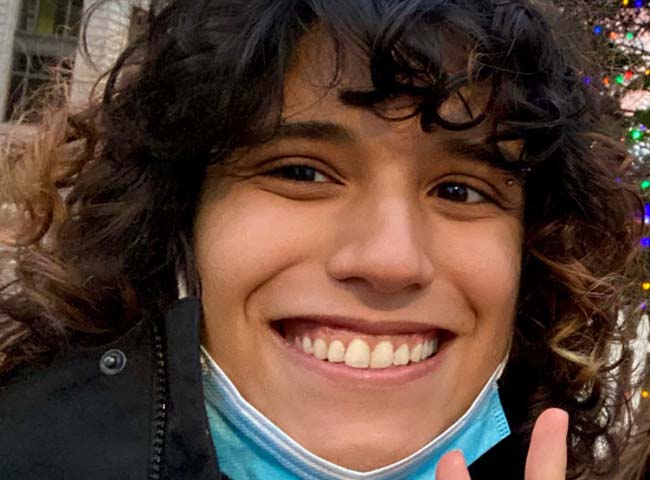Meet Aru

Aru's story
Annual Trans Surgery Fund recipient
Aru (she/her) is a 21-year-old asylum-seeking trans woman from Venezuela who is seeking bottom surgery, also known as GRS or SRS.
The high upfront cost of bottom surgery is simply too much for her to afford: on top of having existing medical debt and being a full-time student, Aru cannot obtain a work permit. Additionally, her insurance will not cover most of her surgery (and even what they will agree to cover, they will only do so through reimbursements months after surgery.)
Even though Aru was able to raise about half the amount of money she needed for surgery on GoFundMe, care has still been out of reach.
As one of the very few openly out trans women she knows in her campus community, Aru is a mentor for other queer and questioning students. She has also organized projects to help secure housing for other Brown trans women.
Aru is excited about being able to wear pants without worry. As one of her biggest insecurities and barriers to a fulfilling life is lifted, she is excited to go to the beach for the first time in years. Aru hopes to be able to join a rock climbing gym after surgery, something her dysphoria would simply not let her do before.
Aru's timeline
-
Award Granted
March 28, 2022
Aru was granted a Surgery Fund Award! -
Care Received
July 13, 2022
Aru has successfully completed surgery!
About MTF Bottom Surgery
On average, it costs $35,000+ for Aru's care.
- What is it?
- Before care
- Accessibility
- After care
What is it?
MTF bottom surgery is also known as gender-affirming vaginoplasty or genital reconstruction surgery. Bottom surgery typically involves multiple surgical techniques and varies widely based on a person’s individual needs and desired outcome.
What is life like for a person who needs this care?
Before undergoing surgery, trans individuals typically experience dysphoria that impacts their daily life. Patients will undergo extensive consultations to discuss their goals, expectations, and surgical options. It is often a long and challenging process to be approved for surgery.
How accessible is it for trans folks to receive this care?
While bottom surgery is often categorized as a covered benefit in many insurance plans, the reality is that it's frequently denied coverage. Many people report unsuccessful attempts to appeal for coverage. In addition, finding skilled surgeons experienced in performing top surgery can be extremely challenging, particularly in states and regions most affected by anti-trans healthcare legislation.
What is the impact of this care on the recipient’s life?
The recovery period for bottom surgery is significant: depending on the individual, it may take several months to heal from the surgery. Most trans folks report greatly improved self-esteem, confidence, and sense of authenticity, which translates into greater opportunities in employment and more.
Your support funds healthcare that's
life-changing. Life-saving. Life-giving.